Taylor Swift has been weaving magic with her words ever since a young age, writing lyrics that resonate with audiences across the globe. Her songwriting abilities have only sharpened with time, allowing her to explore more profound and complex emotions with each new album.
The narratives Swift shares through her lyrics often speak to the human experience’s universal themes—love, loss, heartbreak, and the spirit of youth. Her skillful storytelling and candidness have turned her into a generational voice, making her one of the most influential lyricists of the 21st century.
We have compiled 15 of Taylor Swift’s most compelling lyrics and quotes that have left a mark on the hearts of her listeners. From the whimsical to the melancholic, Swift has a unique ability to capture emotions through her words, proving the timeless appeal of her musical storytelling.
“You paint me a blue sky and go back and turn it to rain; and I lived in your chess game, but you changed the rules every day.”
Dear John (Speak Now)
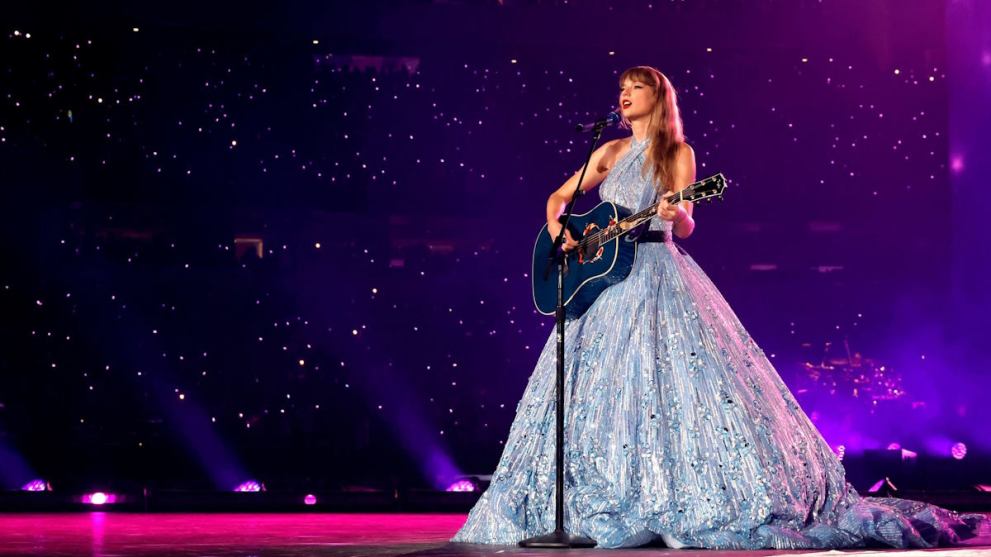
These lyrics are from the song Dear John, which is widely believed to be about her brief, rocky relationship with John Mayer.
Swift describes a scenario where she was given hope or happiness (“a blue sky”) that was later taken away or replaced with sadness or disappointment (“turn it to rain”). This imagery suggests a level of control or manipulation over her emotions, where good moments are quickly overshadowed by bad ones.
The metaphor of a chess game represents a relationship where she felt like she had to navigate an ever-changing set of expectations. The idea of changing rules could denote a lack of consistency or fairness in the relationship.
Overall, these lyrics depict a sense of emotional turmoil, manipulation, and inconsistency in the relationship Swift is singing about. They contribute to the narrative of the song which speaks to feeling used or mistreated in a romantic relationship.
“The rust that grew between telephones, the lips I used to call home, so scarlet, it was maroon.”
Maroon (Midnights)
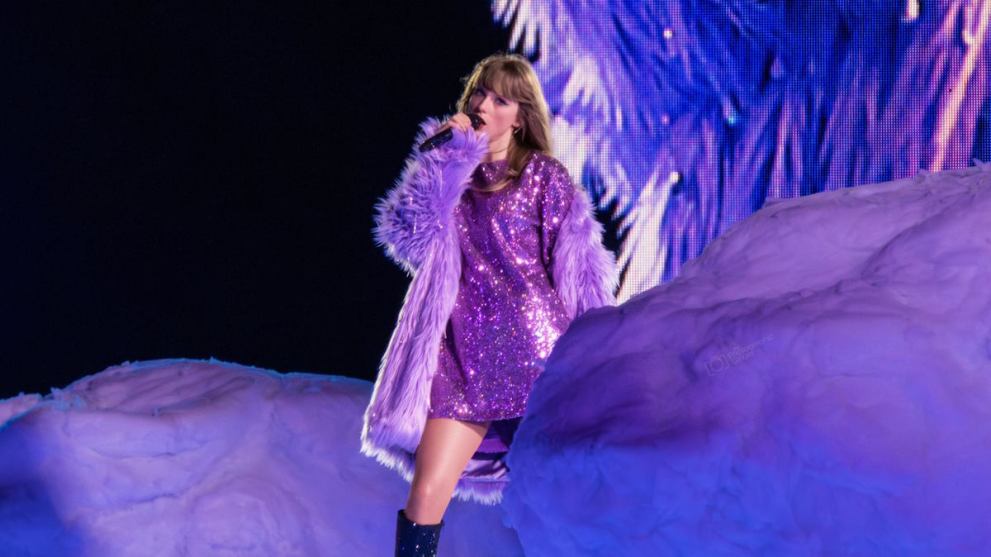
While other artists would simply say “we grew apart” to describe a faded relationship, Taylor Swift uses the imagery of rust growing between telephones in her song Maroon. The metaphor of rust forming on telephones could imply that communication between two individuals has ceased over time. This lack of communication has led to an emotional distance.
The next part of the line is more intimate. It suggests a past closeness or affection with someone whose lips were once considered comforting or “home.” This line encapsulates a sense of loss or longing for that former intimacy or sense of belonging.
The transition from scarlet to maroon could symbolize a deepening or darkening of emotions over time. Scarlet and maroon are shades of red, with maroon being the darker shade. This could reflect a shift from a passionate or lively state to a more somber or serious one.
“I knew you’d linger like a tattoo kiss, I knew you’d haunt all of my what-ifs, the smell of smoke would hang around this long, ’cause I knew everything when I was young.”
Cardigan (Folklore)
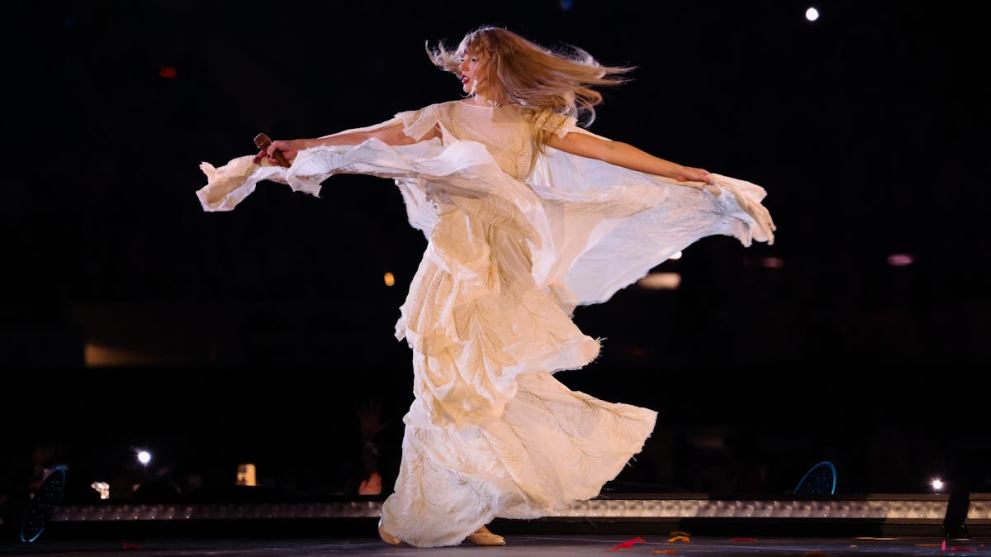
In the song Cardigan, Taylor Swift sings about a relationship that sticks with a person and is so prominent in their life that they can’t get it out of their mind.
Swift uses the metaphor of a “tattoo kiss” to express a lingering mark or memory left by a significant other. Tattoos are permanent and symbolic, suggesting that the person or the relationship has left a lasting impression.
She also expresses the idea that the person or the relationship has left her with lingering doubts or questions (“what-ifs”). The use of the word “haunt” suggests a sense of regret or unresolved feelings.
It symbolizes a lingering damage or the aftermath of a tumultuous relationship. Smoke often represents what remains of something burned or destroyed. This metaphor indicates that the effects of the relationship continue to linger in her life.
Swift may be reflecting on an assumption of understanding more than one actually does at a young age. It’s a common theme in her music to reflect on past experiences with a sense of learned wisdom.
“You kept me like a secret, but I kept you like an oath.”
All Too Well (10 Minute Version) (Red, From the Vault)

These lyrics are from the 10-minute version of Taylor Swift’s song All Too Well. It is often cited by fans and critics alike as one of her most emotionally powerful songs. The song explores the reminiscing and reflection on a past relationship. It details the beauty and the pain associated with those memories.
In this line, Swift uses contrasting metaphors to describe the unequal commitment and visibility in the relationship. Being kept “like a secret” implies a hidden or unacknowledged relationship from one side. Keeping someone “like an oath” suggests a sacred or honored commitment from the other side.
The contrast highlights the disparity in how each person valued or treated the relationship. The sentiment expressed reveals a deeper emotional investment and a willingness to honor the relationship on Swift’s part. This is contrasted against a reluctance or unwillingness to openly acknowledge the relationship on the part of her partner.
This lyrical juxtaposition highlights the emotional weight and self-reflective nature often found in Swift’s songwriting. This resonates with many listeners who may have experienced similar feelings or situations in their own relationships.
“I made you my temple, my mural my sky; now I’m begging for footnotes in the story of your life.”
Tolerate It (Evermore)
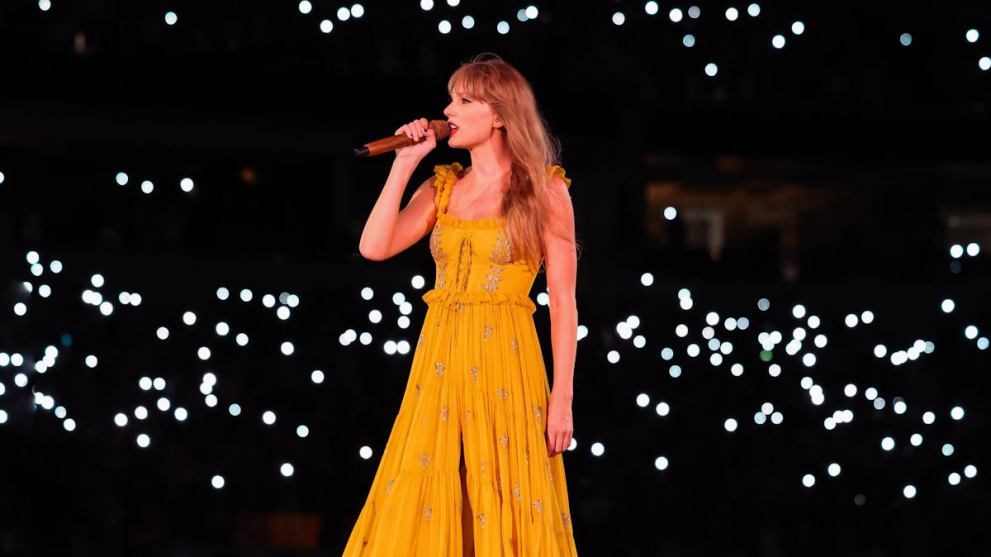
In Tolerate It, Taylor Swift explores the dynamics of a relationship where one person feels unappreciated or undervalued despite their efforts and the emotional investment they have put into the relationship.
These lines depict a deep adoration and devotion towards the person she’s singing about. By using terms like “temple,” “mural,” and “sky,” Swift is expressing the idea that she placed this person at the center of her emotional and possibly her creative universe.
The next part of the line contrasts sharply with the adoration expressed before. Despite having idolized this person, she now finds herself begging for mere recognition. This is likened to footnotes that are often relegated to the bottom of the page and are easy to overlook. This portrays a sense of feeling neglected or undervalued in the relationship.
This song is part of Swift’s exploration of complex emotions and relationships which is a hallmark of her songwriting style on the album Evermore. Through these lyrics, listeners are invited to feel the emotional tug-of-war between love and the ache of feeling undervalued.
“Those Windermere peaks look like a perfect place to cry; I’m setting off, but not without my muse.”
The Lakes (Folklore)
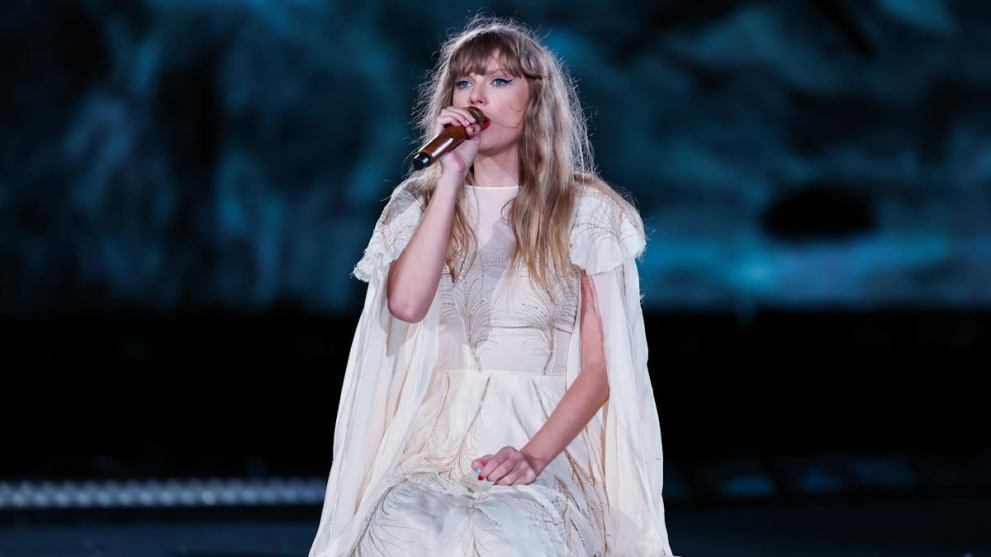
In the song The Lakes, Taylor Swift references Windermere, a large lake in England, known for its stunning natural beauty and picturesque surroundings. The peaks likely refer to the mountainous terrain around the lake. This place is presented as a serene, secluded, and perhaps cathartic location where one could escape to reflect or even to cry.
The phrase “I’m setting off, but not without my muse” suggests embarking on a journey, both literally and metaphorically, to find inspiration or emotional release. The term “muse” traditionally refers to a person or entity that provides artistic inspiration.
In the context of the song, it could refer to a significant other or a personal experience. It reflects a sense of seeking emotional solace and inspiration.
“I ask the traffic lights if it’ll be all right, they say ‘I don’t know.'”
Death By A Thousand Cuts (Lover)
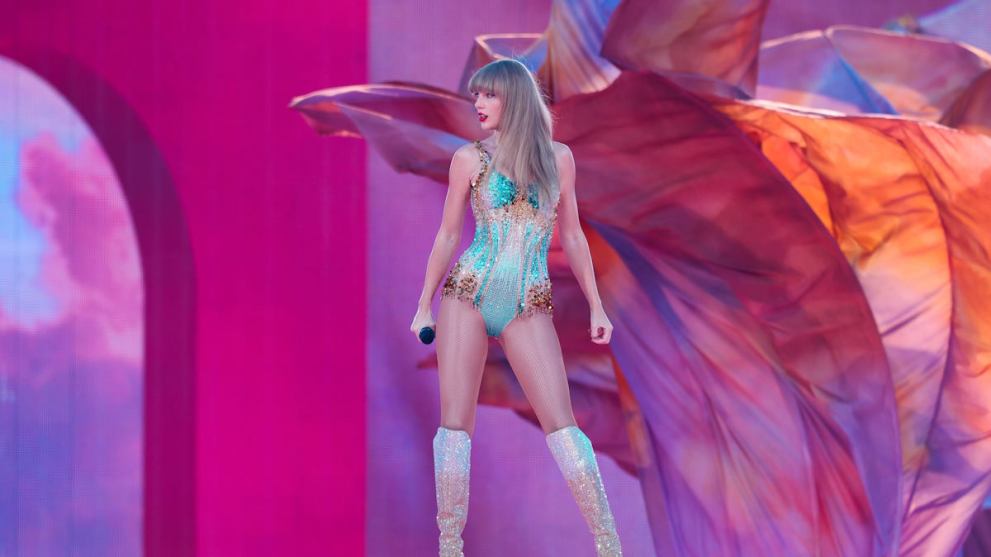
This line from the song Death By A Thousand Cuts is metaphorical in nature and depicts a sense of uncertainty and seeking reassurance, even from inanimate objects like traffic lights. The act of asking traffic lights for reassurance is a poetic way to express feeling lost or seeking signs that things will improve following a tough situation, possibly a breakup or a difficult period in life.
The traffic lights responding with “I don’t know” further amplifies the uncertainty and lack of reassurance she’s facing. It could signify a moment of desperation where she’s looking for signs of hope or clarity but is unable to find them.
Death By A Thousand Cuts explores the emotional aftermath of a painful breakup, and its lyrics explore the process of healing and moving on. This line in particular captures the complex emotions in a relatable and thought-provoking manner.
“The drought was the very worst, when the flower that we’d grown together died of thirst.”
Clean (1989)

These lyrics are from the song Clean. The “drought” could symbolize a period of emotional barrenness or a lack of affection in a relationship. The “flower that we’d grown together” symbolizes the relationship itself or perhaps the love that had been cultivated between the two individuals.
The imagery of a flower needing water to survive parallels a relationship needing love, attention, and care to thrive. The line depicts a tragic picture of a relationship withering away due to neglect or lack of sustenance. A flower dying of thirst powerfully portrays the loss and sadness associated with the end of a meaningful relationship.
Clean can be interpreted as a song about moving on and healing from a past relationship. Through these poetic lyrics, Taylor Swift portrays the pain and sadness associated with a relationship’s end, while also offering a sense of hope and cleansing transformation as one moves forward.
“What if I’m standing in your closet trying to talk to you? And what if I kept the hand-me-downs you won’t grow into?”
Ronan (Single)

Ronan is one of the most emotionally devastating songs written by Taylor Swift. The song is based on a blog post by Maya Thompson, who is the mother of a young boy, Ronan, who tragically passed away due to neuroblastoma, a type of cancer. Taylor Swift was moved by the blog and wrote “Ronan” using Maya’s own words.
These lines convey a heartbreaking image of a grieving mother in her deceased son’s closet, possibly surrounded by his clothes and belongings, attempting to communicate with him or feel close to him again. The imagery captures profound sense of loss and yearning for the presence of the loved one.
The mention of “hand-me-downs” symbolizes the future and the growth that Ronan will never experience. It reflects on the permanent loss and the unfulfilled hopes and dreams that parents hold for their children. Keeping the hand-me-downs represents holding onto memories and the painful acknowledgment of a future that was cut short.
Ronan is an exceptionally moving song that about the deep grief and heartbreak associated with losing a loved one to cancer, especially a young child. Swift brings forth the unfiltered sorrow and the impact Ronan had on his mother and others.
“And if I’m dead to you, why are you at the wake? Cursing my name, wishing I stayed.”
My Tears Ricochet (Folklore)
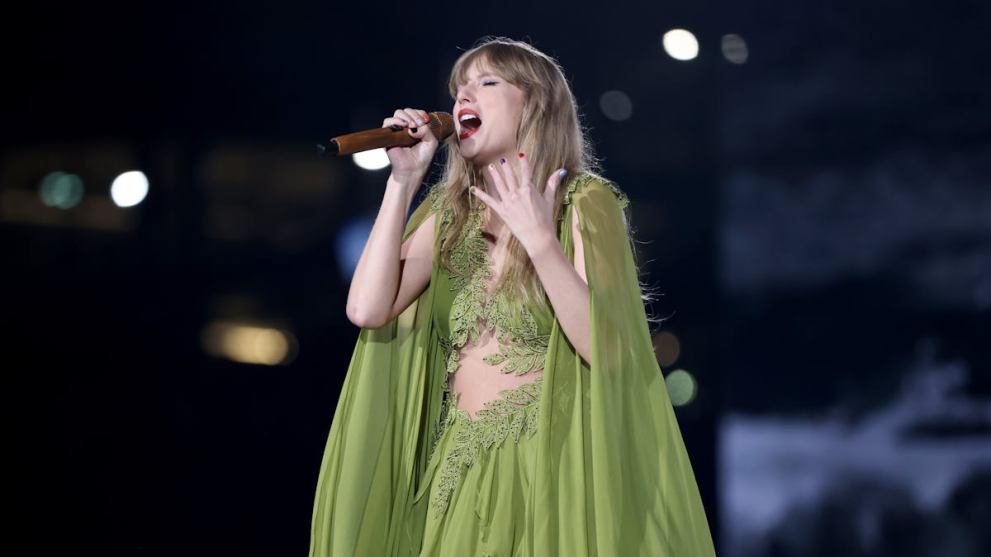
This line from My Tears Ricochet poses a rhetorical question aimed at an individual who is present at a metaphorical wake despite claiming to have severed ties or emotions with the speaker. It conveys a sense of confusion or hypocrisy on the part of the individual who, despite proclaiming indifference or detachment, is still present at an event signifying mourning or remembrance.
The words here express a conflicting sentiment from the individual, who on one hand is cursing the speaker’s name but on the other hand is wishing they had remained present in their life. This conflict reflects the contradictory emotions that often accompany complex relationships or breakups.
The lines here are a mournful reflection on a lost relationship and the lingering emotions that follow. The allegorical usage of death and a wake represents the end of a relationship and the emotional aftermath that ensues. Through these lyrics, Swift evokes a powerful narrative that explores the paradoxical nature of longing, bitterness, and the unresolved remnants of a once cherished relationship.
“‘Cause there were pages turned with the bridges burned; everything you lose is a step you take.”
You’re On You’re Own, Kid (Midnights)

These lyrics are from the song You’re On Your Own, Kid, which is an empowering song about growing up and realizing what is most important to you.
This line evokes imagery of moving on and the consequences that come with it. The metaphor of “pages turned” could symbolize moving forward or progressing in life, while “bridges burned” may imply ending relationships or closing off previous opportunities. Together, these phrases could signify the often challenging decisions one has to make to move forward, which sometimes includes leaving certain things or people behind.
These lyrics suggest that with every loss, there’s progression or growth. The idea could be that life’s losses, however painful, contribute to one’s personal journey, helping them to grow, learn, or move forward in some way. It’s an empowering message that frames loss as a stepping stone or a necessary part of one’s path.
“I’ll paint the kitchen neon, I’ll brighten up the sky. I know I’ll never get it; there’s not a day that I won’t try.”
Soon You’ll Get Better (Lover)

Soon You’ll Get Better is an emotionally difficult track that Taylor Swift wrote about her mother’s battle with cancer. It’s hard to not shed a tear during the entire song, but these lines are especially heartbreaking.
In these lines, Swift expresses a desperate willingness to do anything, no matter how eccentric, to bring some light or hope into a dark and challenging situation. The imagery of painting the kitchen neon or brightening the sky could symbolize efforts to create a positive or hopeful environment during the distress and uncertainty of a serious illness.
She also acknowledges the harsh reality that some things are beyond control that she will never understand, like a loved one’s health condition. Despite this acknowledgment, she expresses a relentless commitment to trying to make things better every single day. This reflects the emotional struggle and the enduring hope that often accompany watching a loved one battle a serious illness.
“How evergreen, our group of friends; don’t think we’ll say that word again, and soon they’ll have the nerve to deck the halls that we once walked through.”
Champagne Problems (Evermore)

The song Champagne Problems explores complex emotions surrounding a failed proposal, which brings about loss, change, and the bittersweet passage of time as the relationship dissolves.
In this line, the term “evergreen” might be used to denote something that remains fresh or unchanged over time. Taylor Swift might be reflecting on the seemingly unchanging nature of her group of friends.
However, with the phrase “don’t think we’ll say that word again,” she indicates a change that has occurred which has likely altered the dynamics within the group of friends, making the term “evergreen” no longer applicable.
The phrase “deck the halls” is often associated with celebration or festivity (like decorating for Christmas), suggesting that others may be moving on or celebrating something in a place that holds significant memories or emotional resonance for the speaker. This may invoke a sense of nostalgia or loss as life continues to move forward in the spaces that were once integral to the speaker’s life.
“And I love you for giving me your eyes, for staying back and watching me shine.”
The Best Day (Fearless)
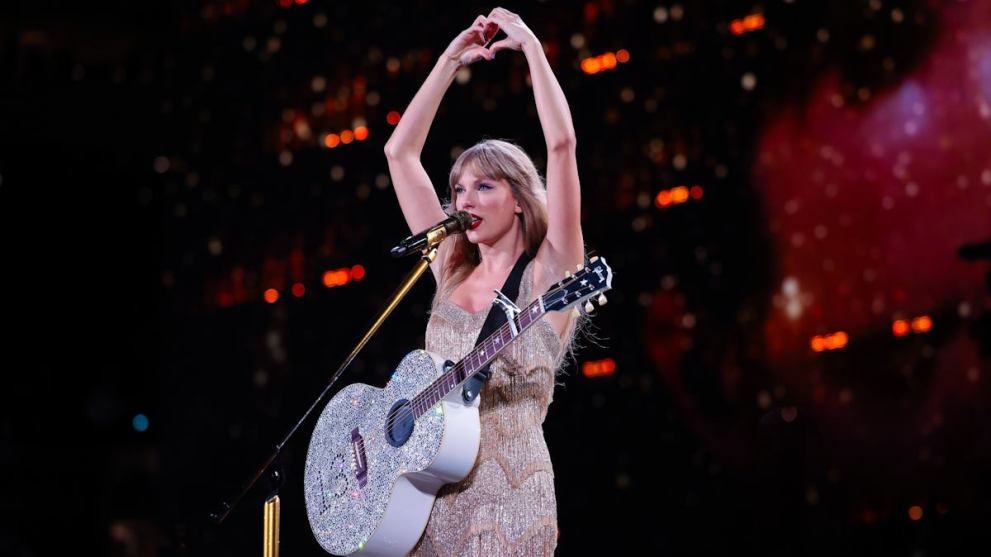
Taylor Swift’s song The Best Day is a tribute to her mother, Andrea Swift, to show gratitude for her upbringing.
In this line, she expresses gratitude to her mother for the perspective and understanding her mother has provided her. It could also imply the way her mother sees the world and how that has shaped Taylor’s own worldview.
The lyrics indicate that she appreciates her mother’s supportive presence in her life. By “staying back,” her mother has allowed Swift to take the spotlight and “shine” in her own right while still being there for her. It reflects a sense of selfless support and love that has enabled her to pursue and achieve her dreams.
The sincere acknowledgment in these lines showcases the gratitude Swift holds for her mother’s love and support. This may resonate with any listener who has a similar person in their own life.
“Time breaks down your mind and body; don’t you let it touch your soul.”
Timeless (Speak Now, From the Vault)
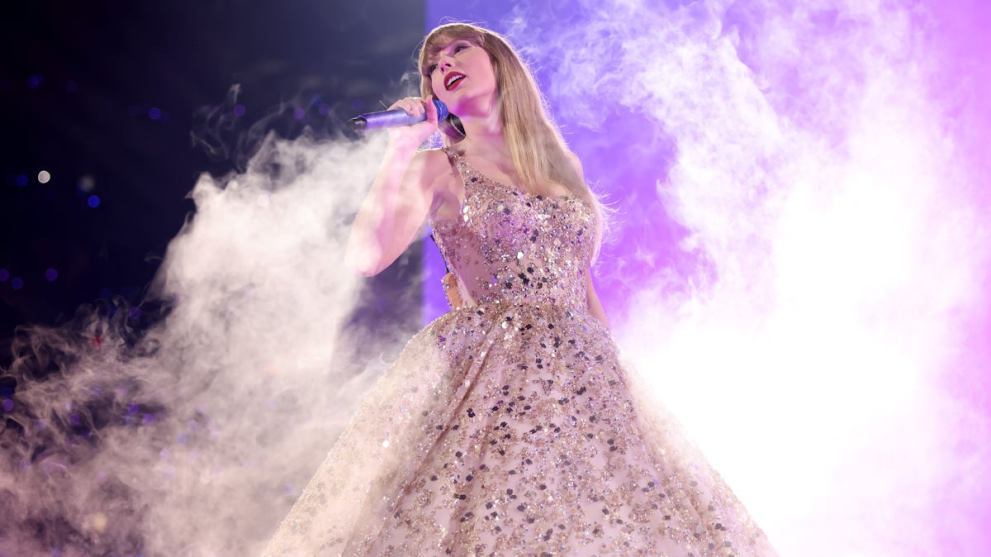
The song Timeless examines how a two people in a relationship were destined to meet each other no matter at what point in history they would have lived.
This particular line suggests the inevitable wear and tear that time has on one’s physical and mental well-being. It’s a reflection on aging, experiences, and the emotional and physical toll they can take. It’s a melancholic acknowledgment of the reality of human vulnerability over time.
The next part could serve as an empowering reminder or advice to not let these changes affect one’s inner essence. It suggests a resilience or an enduring aspect of self that remains untouched by the passage of time. The idea might be to maintain hope, innocence, love, or other core aspects of one’s being despite the adversities and changes one might face over time.
And those are our picks for the best Taylor Swift lyrics. Be sure to search for Twinfinite for more news and information on the singer-songwriter, including a full list of answers to her 1989 vault puzzles.



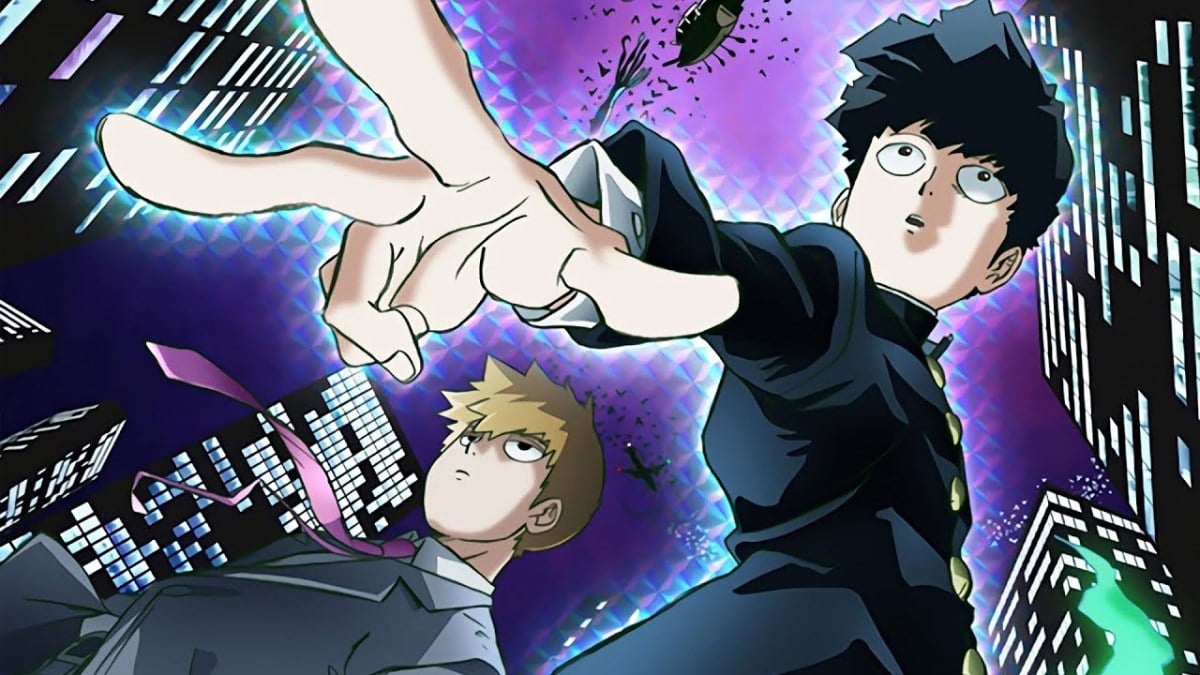
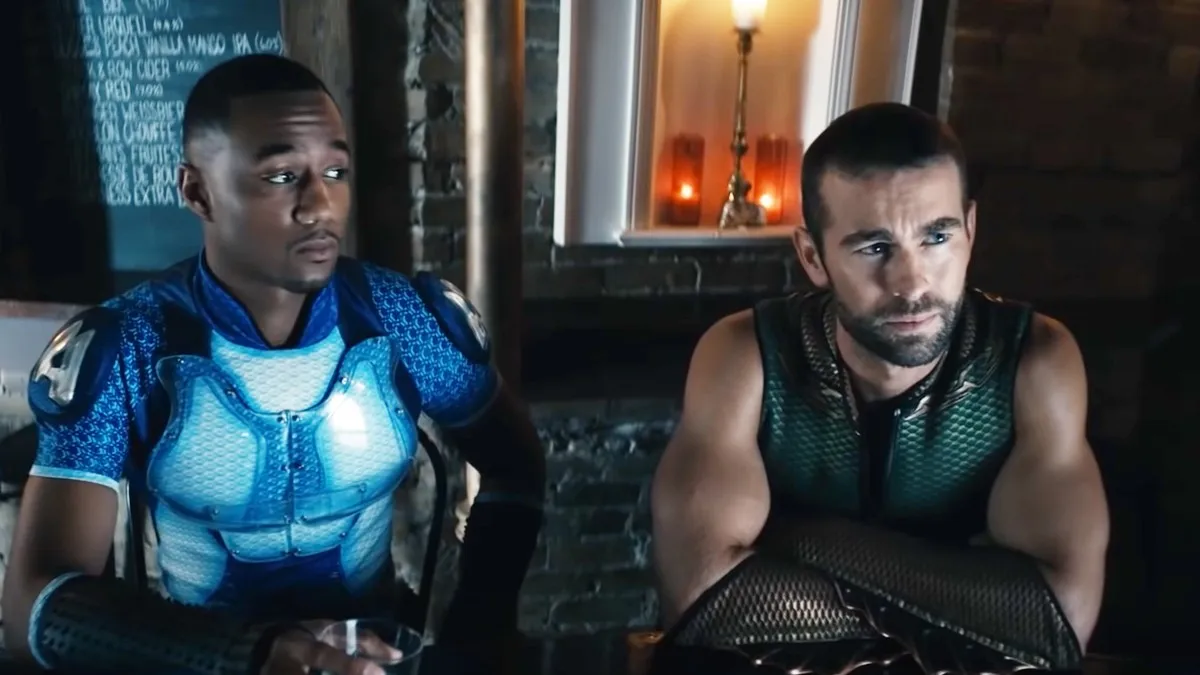

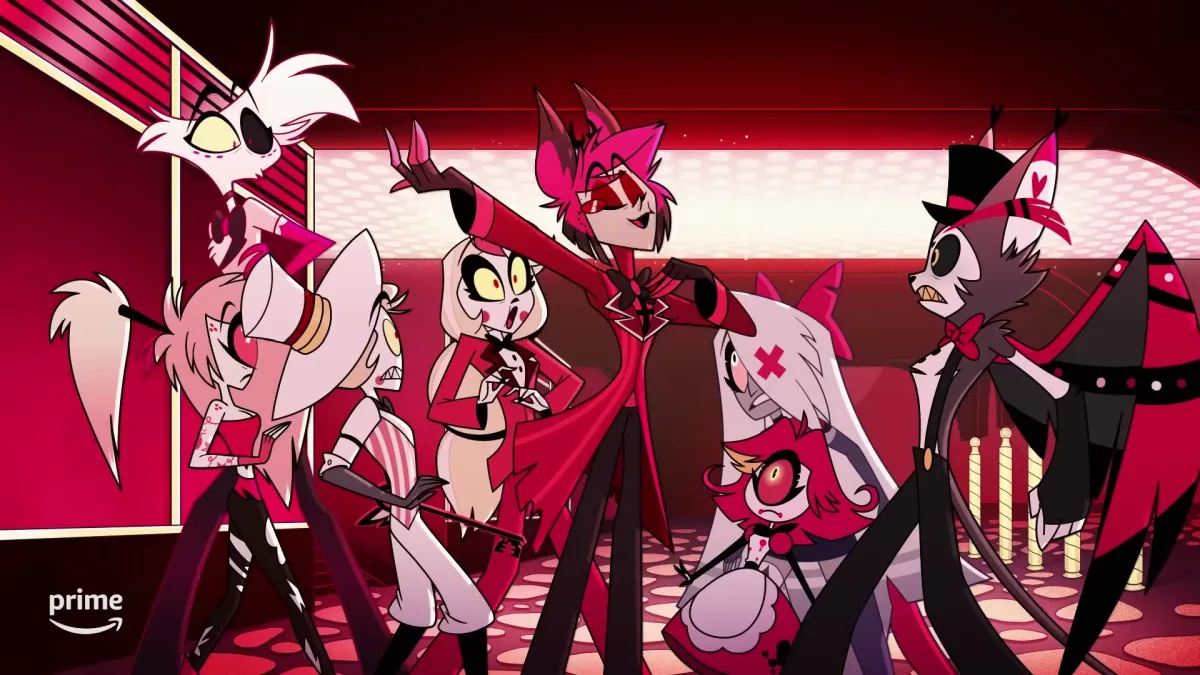

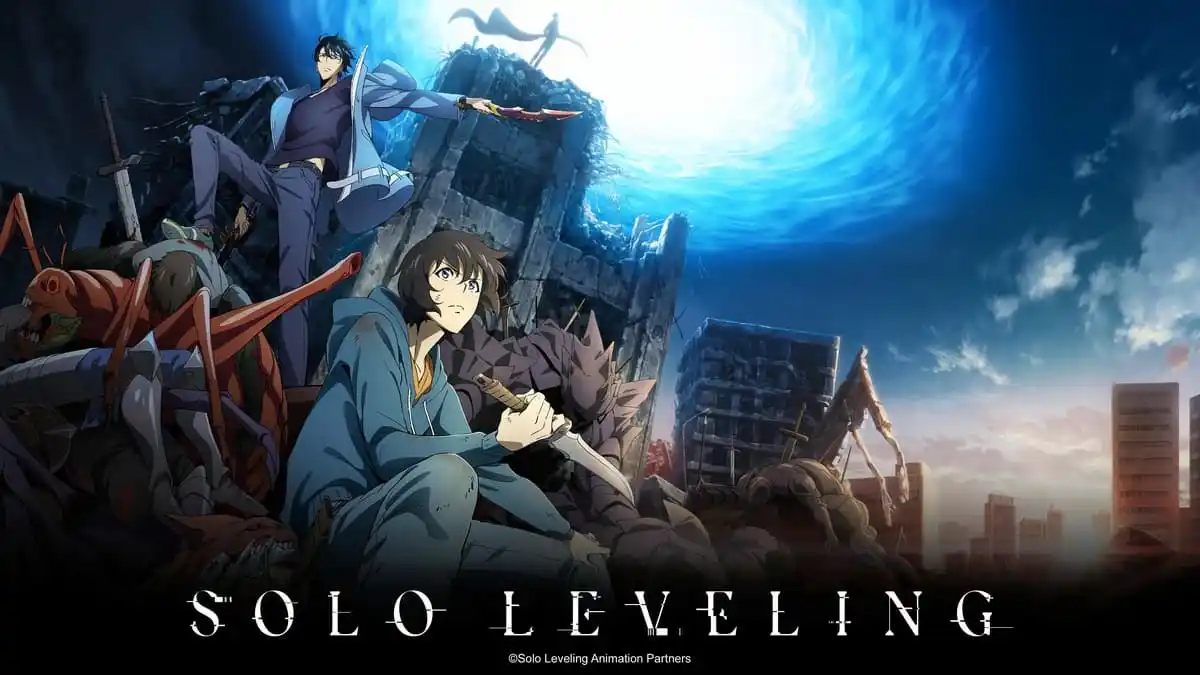


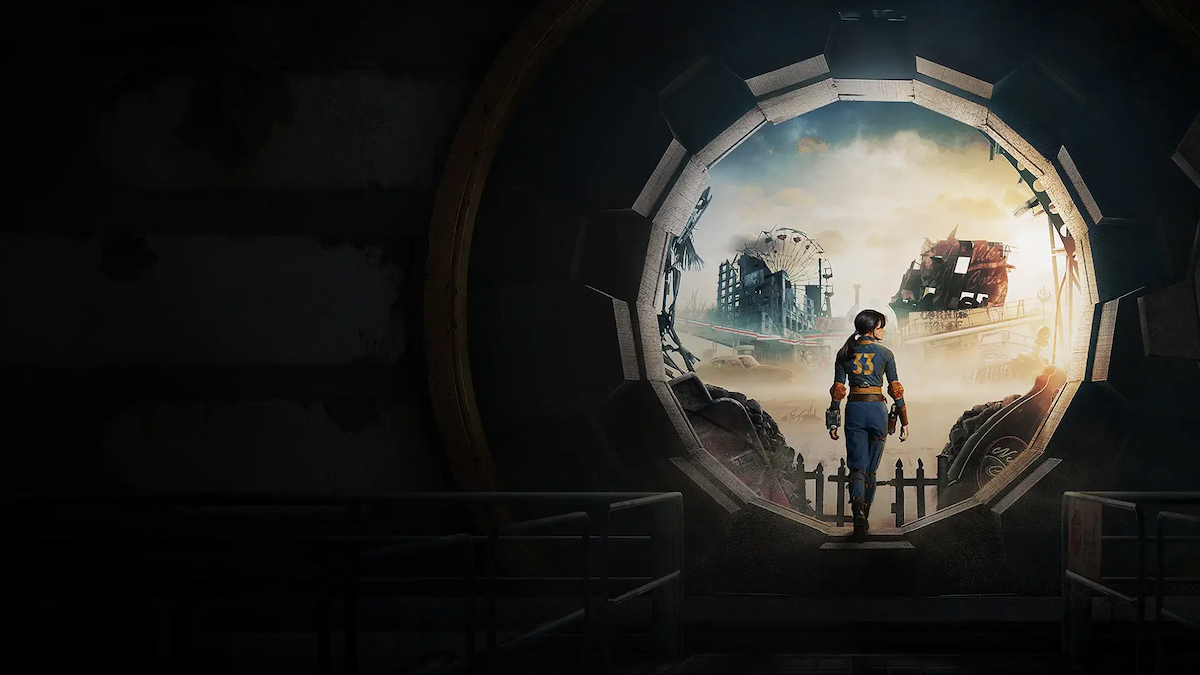

Updated: Jan 8, 2024 03:05 pm